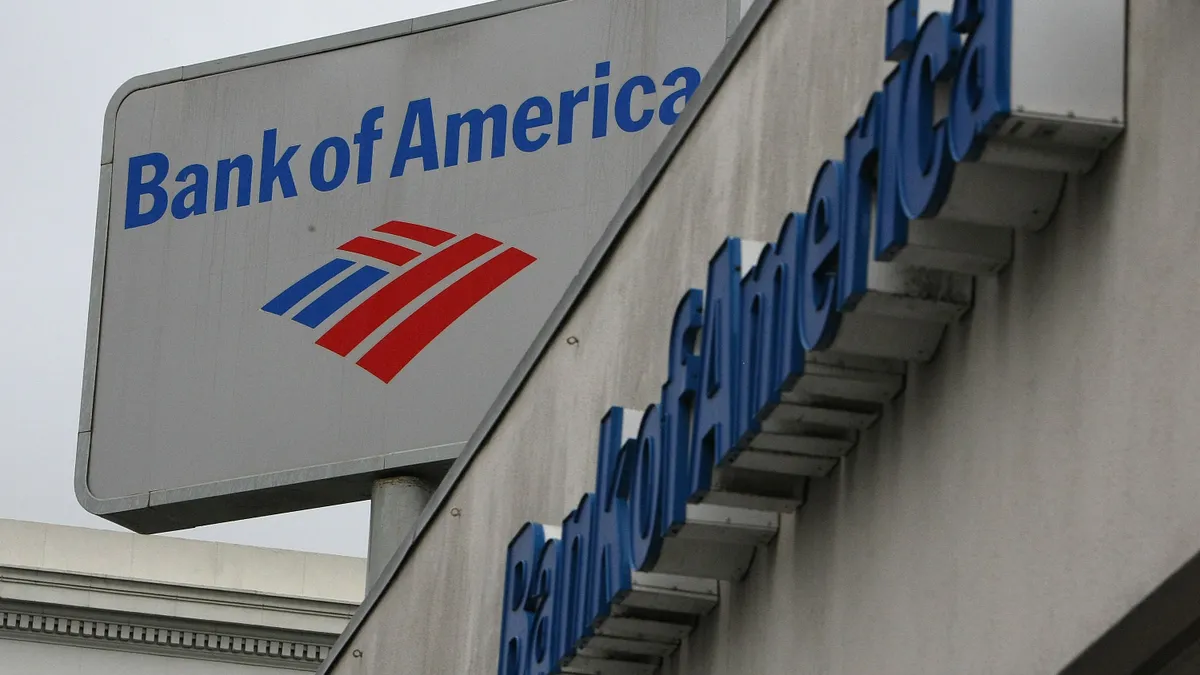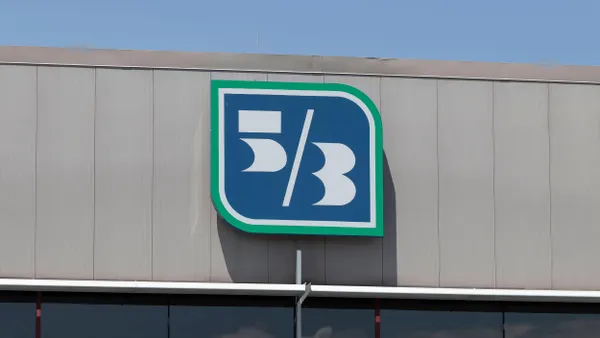Dive Brief:
- Banked, which was founded in the U.K. and provides payments software to banks, will offer its pay-by-bank services in the U.S. market next year, the company’s CEO, Brad Goodall, said in an interview last week.
- The fintech, which began building a presence in the U.S. last year, also expects to add new U.S. bank investors soon, Goodall said, extending a roster that already includes Bank of America and Citi.
- “We are launched [in the U.S.] in a sort of beta environment and, ultimately, will start to really develop payment flow in the U.S. in 2024,” Goodall said last week.
Dive Insight:
The fintech, founded in 2018 in London, has raised $56 million from strategic investors and venture capitalists, Goodall said. Some of those investors, including Bank of America and Citi, are also clients, he said.
For its U.S. bank customers, the fintech already provides its pay-by-bank services outside the U.S., Goodall explained. “Pay-by-bank is effectively another product that they can sell into merchants,” he said.
“We have a global platform that is currently live in the U.K., and in a number of markets in Europe, and is now launched and is going live in Australia,” he said. In addition to the U.K., Banked also has operations in Lithuania.
Banked employees landed in the U.S. last year, and the fintech operates from Palo Alto, California. It’s also in the process of opening an office in New York, given that city’s status as a banking capital, Goodall said. At the moment, the company has about 25 of its 130 employees in the U.S., he said.
“It’s certainly our growth area,” Goodall said of the U.S. market. “All of our capital deployment around growing is largely actually in the U.S. with some now in Australia.”
Goodall pointed to insurance payouts as the type of account-to-account service his company provides that replaces a check by making the payment through an automated or real-time payment system.
“In the U.S., our payout solution is the product that we’re launching right now,” Goodall said. “We launched that via different banks, and because they are the ones that ultimately hold the merchant relationship, they’re likely the ones that are also issuing the checks on behalf of that merchant, and so therefore, it’s a service that they would sell on top of other services that they have.”
Banked matured in Europe with help from that continent’s use of the open banking model, where consumers and businesses can more easily shift their accounts and financial data than is the case in the U.S.
The fintech tapped the U.K.’s real-time payments system for speedier bank payments, and it wants to make increasing use of such payments in the U.S., too, especially given the launch of the Federal Reserve’s instant payments system FedNow this year, Goodall said. FedNow competes with the private real-time payments system RTP, launched by its bank owners at The Clearing House in 2017.
“The U.S. is starting to go through its own sort of real-time payments moment, and I think we wanted to be here at the very start,” Goodall said.
Ultimately, those instant payment rails will allow retailers to use account-to-account payments for their consumer clients, letting them move away from credit cards and interchange fees, Goodall predicted, though he has no illusions about that happening anytime soon.
“Retail is a really big focus point, but to be very clear, it is also the one that will take the longest to adopt because RTP [and] FedNow, those two payment methods aren’t fully there yet, and ACH does have some inherent problems because it’s not real time — it's still a batched solution,” he said.















